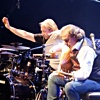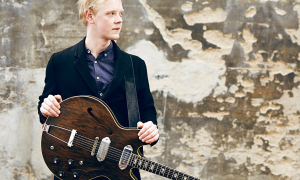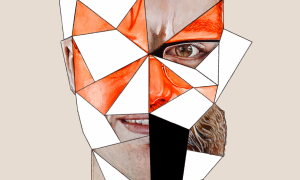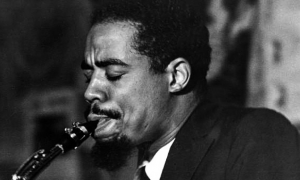Home » Jazz Articles » Hi-Res Jazz » The Westerlies: New Music For Brass In Hi Res
The Westerlies: New Music For Brass In Hi Res

[There is] a whole generation of younger performing and creative talents for whom those old stylistic and conceptual boundaries have long since disappeared.
—Gunther Schuller
One track from the album, an arrangement of the English folk ballad "Saro," was promoted by Tom Huizenga, a music producer and blogger for NPR Music, in his "Songs We Love" column. Not long afterwards,

The Westerlies
band / ensemble / orchestrab.2011
Music listening has become a solitary preoccupation, as a glance at any rush-hour train, cafĘŽ or busy gym would confirm. Millions of us move through the day encapsulated in our personal aural space, courtesy of iTunes, Spotify, Bose and Beats. NPR's Tiny Desk series, shot in HD video with good-quality audio recording, offers a virtual substitute to thousands of device users for the in-person concert-going experience. Artists who might otherwise not have access to a wide audience are recorded on a set that resembles a college radio station, bookshelves overflowing with CDs, LPs and craft-brew bottles. A well-produced 10-minute Tiny Desk segment is arguably more engaging to the listener than compressed MP3s over a streaming service or YouTube videos posted on Facebook that you never actually watch.
But even a well-timed feature on NPR couldn't guarantee the success of an album of new music that lacks vocals, bass, drums... or any electronically or digitally-generated sound. Social media may have fueled the buzz, but it's imaginative musical conception, clockwork-precise ensemble arrangements, virtuoso performances and exemplary sound engineering that makes The Westerlies such a rewarding experience.
BACKGROUND
The four group members,

Riley Mulherkar
trumpetZubin Hensler
trumpet
Andy Clausen
tromboneb.1992

Willem De Koch
tromboneTHE MUSIC
The Westerlies' compositions overlap with some contemporary classical music genres, but they don't surf the same cultural wave. Each member of the group contributes original compositions that draw on a range of musical idioms, from hot and cool jazz, folk songs and hymns, to European art music and movie soundtracks. And while all of the player-composers have pursued their own individual artistic courses, the compositions they bring to the project share enough similarities in form and idiom to create a unified band sound. The pieces are through-composed mini-suites that do not follow traditional jazz or even post-bop form. There is a conscious exclusion of bebop vocabulary from the improvised passages, a declaration of distinction from jazz as it is generally recognized and taught.
The title of this column alludes to the 1956 Columbia jazz LP Music for Brass. That record documented a musical direction labeled Third Stream, a project which brought jazz composers such as

Charles Mingus
bass, acoustic1922 - 1979

J.J. Johnson
trombone1924 - 2001

John Lewis
piano1920 - 2001

Miles Davis
trumpet1926 - 1991

Gunther Schuller
composer / conductor1925 - 2015
The world of music in the 1950s was still divided among sharply defined lines of musicians. Today, those erstwhile separate worlds have come together, have cross-fertilized, and [there is] a whole generation of younger performing and creative talents for whom those old stylistic and conceptual boundaries have long since disappeared.
Schuller's observations couldn't be more pertinent in describing the cultural developments in the music world evidenced on The Westerlies. It is intentionally not jazz, while displaying the genius of brass ensemble performance developed by jazz players. All of the group members have led, or collaborated and performed in jazz ensembles, and undoubtedly could incorporate more conventional jazz vocabulary in their solos if they aimed to do so. There is a kind of boastfulness in their stance that, in lesser hands, could be heard as arrogance. But because they are such accomplished players and composers, the music never sounds pretentious, and since most of the 17 tunes run 3 to 6 minutes, the album is both artistically advanced and streaming-friendly—a guiding principle and a skillful means of breaking through to a larger audience.
Trumpetist Riley Mulherkar's "Lopez," the tune that closes the first CD, is one of the highlights of the album. In a bravura display of horn technique and harmonic inventiveness, Mulherkar improvises variations on the opening theme that gradually digress from the subject material and mutate into breathy, almost gasping, atonal phrases.
The longest piece on the album, Andy Clausen's "Although Of Course You End Up Becoming Yourself" (which perhaps alludes to the maxim that musicians who initially resemble their influences will, with persistence, eventually sound like themselves), is an unabashedly brassy tone poem with alternating rhythms and strong forward momentum. The comical "Rue des Rosiers" paraphrases film composer Nino Rota as it stumbles back and forth from a ? meter drunken dance into a bluesy trumpet solo over slow trombone arpeggios, and finally lurches back into a circus music coda. The group's bravura tone production gleams in this vibrant performance.
Zubin Hensler's compositions reveal an autumnal, melancholy character that can often be heard in contemporary film music, so it is not surprising to learn that he has scored shorts and documentaries, and that he collaborates with choreographers. In "So So Shy" Hensler's classical training is evident; the piece opens with a terse trumpet statement over staccato 4/4 bursts by the trombones, and goes on through an evolving set of musical idioms—20th century modernism to free improv atonality—of ever-increasing complexity before settling into a contemplative conclusion. "The Beach," an introspective piece with echoes of Aaron Copland and

Gil Evans
composer / conductor1912 - 1988

Wayne Horvitz
keyboardsb.1955
Trombonist Willem de Koch contributes "The Beekeeper" and "The Shop," postmodernist tunes that playfully toss their influences (Copland,

George Gershwin
composer / conductor1898 - 1937
THE SOUND
Jesse Lewis, a Grammy-award winning engineer formerly of Boston's Sound Mirror team, was the perfect choice to produce and record The Westerlies. In his teens, Lewis was a student trumpet prodigy who studied at the same school later attended by members of the group. He won critical praise for engineering classical SACDs including Music for a Time of War on Pentatone, and Wind Serenades on Summit. For The Westerlies, recorded at Lewis' own studio, the horn players are positioned in a front-line array that recreates their live performance configuration and permits the smallest nuances of sound to emerge with startling accuracy.
The 192/24 download of The Westerlies is a vivid, realistically detailed recording, and easily one of the best hi-res new-music releases of the year.
Tags
Comments
About The Westerlies
Instrument: Band / ensemble / orchestra
PREVIOUS / NEXT
Support All About Jazz
 All About Jazz has been a pillar of jazz since 1995, championing it as an art form and, more importantly, supporting the musicians who make it. Our enduring commitment has made "AAJ" one of the most culturally important websites of its kind, read by hundreds of thousands of fans, musicians and industry figures every month.
All About Jazz has been a pillar of jazz since 1995, championing it as an art form and, more importantly, supporting the musicians who make it. Our enduring commitment has made "AAJ" one of the most culturally important websites of its kind, read by hundreds of thousands of fans, musicians and industry figures every month.




 Buy Now
Buy Now























